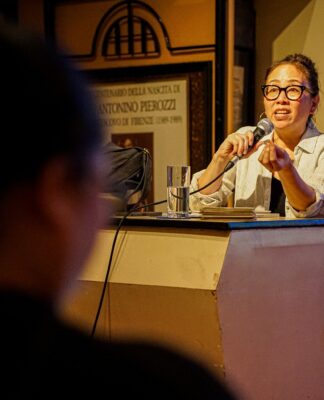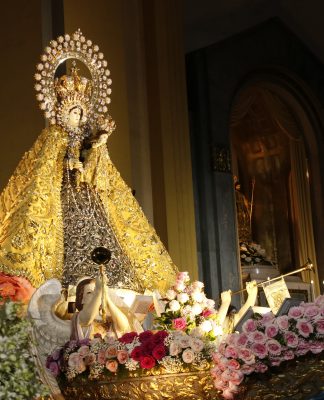January 29, 2016, 6:44p.m. – CEBU CITY – SPIRITUAL poverty is a result of material poverty, Nigerian Archbishop John Cardinal Onaiyekan said in his catechesis during the sixth day of the 51st International Eucharistic Congress (IEC) here.
Cardinal Onaiyaken, in his catechesis titled “The Eucharist: Dialogue with the Poor and the Suffering,” said material poverty was an immediate concern that affecting the spiritual life of the people, resulting in a “dramatic contradiction in the modern world.”
“Material poverty sometimes becomes misery and an inhuman standard of living,” Cardinal Onaiyekan said.
The archbishop of Abuja said spiritual poverty was manifested through selfishness caused by the “unequal and unjust distribution of the Earth’s goods.”
“Spiritual poverty is the lack of spiritual values, expressing itself in the form of selfishness. It is due to human failures like the bad distribution of goods because of injustice and greed,” Cardinal Onaiyekan said. “It is our responsibility that everyone receives his own due so that we might live in dignity.”
Giving her testimony on the impact of material poverty was Filipina pastoral worker Ma. Georgia Cogtas, whose line of work includes organizing catechetical missions and feeding programs for street children.
Cogtas, a former street child herself, appealed to parishes to have more programs and spaces for impoverished children.
“Our churches are the closest places where the street children can see God, and the closest places where the children can see their dreams,” Cogtas said.
‘Eucharist is inclusive’
In another catechesis session, Mumbai Archbishop Oswald Cardinal Gracias emphasized the Eucharist as an inclusive event in which the Word of God is shared with everyone.
“The Eucharist is not an exclusive and sectarian cult. Religion itself should be free from any narrow, sectarian and exclusivist tendencies,” Cardinal Gracias said in his talk titled, “The Eucharist in the Church’s Dialogue with Religions.”
Archbishop Dominic Jala of the Archdiocese of Shillong read the Gracias’ paper, as the cardinal was unable to attend the 51st IEC.
According to Cardinal Gracias, food is sacred in various religions because it fosters the sense of community and is a symbol of communion with God.
“Food is also an instrument of our life in the community, since love, hospitality, and unity is expressed through the sharing of food at joyful events like birth and marriage,” Gracias said. “The celebration of a meal is a celebration of life.”
Cardinal Gracias explained the sacredness of food and meal-sharing in religions like Hinduism, Islam and Sikhism, saying one of the common denominators among these religions is that food comes from God, therefore it is holy. Danielle Ann F. Gabriel and Lea Mat P. Vicencio

















